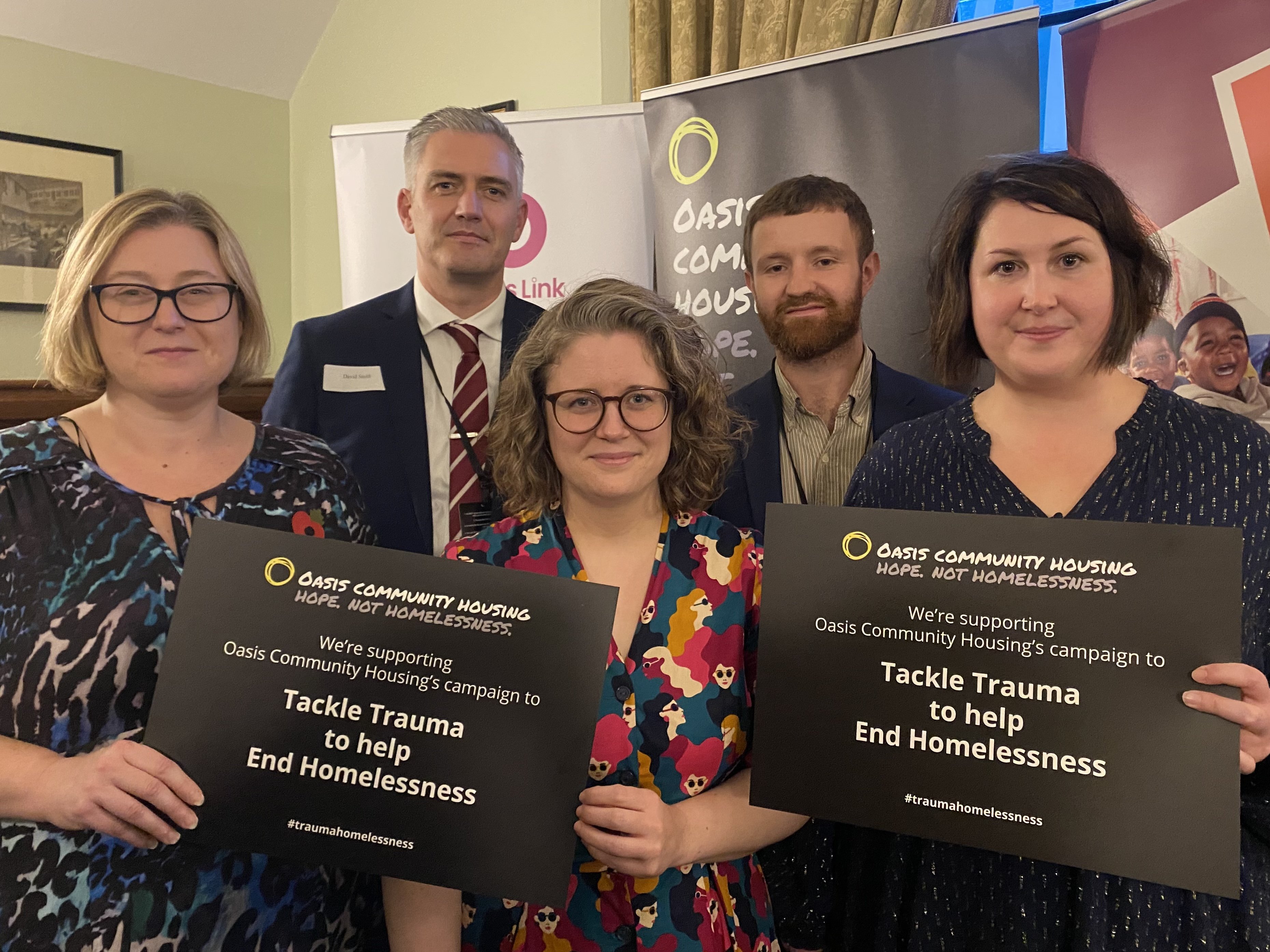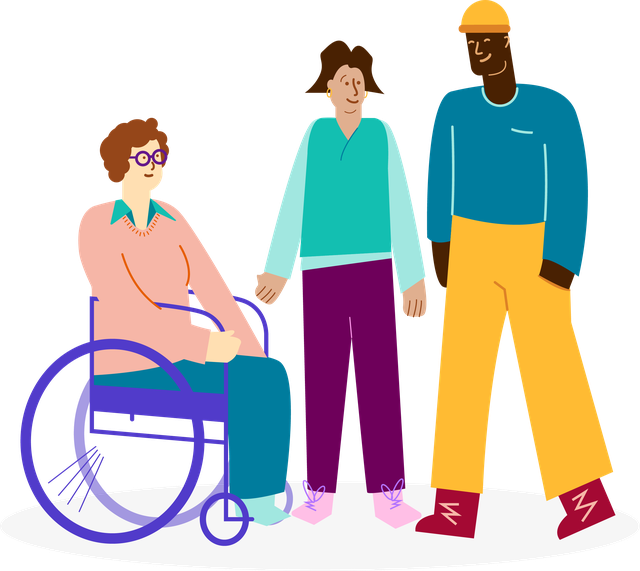By David Smith, CEO at Oasis Community Housing
We all know homelessness and trauma are inextricably linked. Childhood neglect, domestic abuse, bereavement and violence - to name a few - are the stories our frontline staff hear on a daily basis.
While research by the likes of Dr Nick Maguire, Kathryn Macia et al and sector colleagues at Evolve Housing+Support have conducted research exploring the correlation between trauma and homelessness, we, at Oasis Community Housing, wanted current England-wide evidence that gave a hard statistic to the prevalence of trauma in our homelessness population. That evidence launched at a Parliamentary event this week, hosted by APPG for Ending Homelessness Vice Chair The Rt Hon Sir Stephen Timms.
Our research, by Northumbria University, revealed that 94% of people facing homelessness* have experienced trauma. The majority of trauma was complex and occurred at multiple stages throughout life, with 2 in 3 people reporting four or more traumas or trauma for a prolonged period. While these numbers indicate a very high prevalence of trauma amongst those with experience of homelessness in England, our researchers summised that they are likely an under-reporting.
The research shows trauma is often a direct trigger for homelessness. With homelessness itself a further trauma. This seemed to be particularly acute among those who had fled domestic violence. 38% of people reported trauma as a result of being homeless; for example, many reported trauma linked to rough sleeping. Here, they shared feelings and experiences of hunger, fear, vulnerability, violence, exploitation, stigma, poor physical health, addiction, loss and isolation.
Critically, one respondent said, “Every time I become homeless it’s traumatic … and it doesn’t get any better either.” A poignant reminder that the majority of people experience repeat homelessness.
The ensuing impacts of trauma were found to be wide-ranging and devastating. Poor mental health, relationship difficulties, difficulties in managing emotions and a negative view of themselves were cited as the most significant impacts of trauma. Again, experiences and behaviours we are all familiar with in our services.

Despite the high prevalence of trauma, less than half of those surveyed had accessed counselling or mental health support for their trauma. Feedback about frontline homelessness services, food banks and addiction and recovery services were largely positive. However, respondents’ comments also show other support services failing due to long waiting times, refusals of help due to co-occurring alcohol or substance use issues, and a general lack of understanding around and sensitivity to trauma.
This complex and often mutually reinforcing relationship between trauma and homelessness led our researchers to conclude, it is futile to try to solve the issue of homelessness without addressing trauma. We are not staying that tackling trauma will provide us with a silver bullet, but without acknowledging and addressing trauma than other efforts to end homelessness will fail.
With the support of Homeless Link, that’s the message we took to a roomful of almost 50 Parliamentarians, sector partners and other homelessness and trauma experts this week - including Shadow Minster for Homelessness and Rough Sleeping, Paula Barker. We hope you will join us in calling on the Government to tackle trauma to help end homelessness, via our online campaign pledge.
To sign the pledge, see our policy asks in full or read the new research, The prevalence of trauma among people who have experienced homelessness in England, please visit https://www.oasiscommunityhousing.org/trauma-homelessness/

